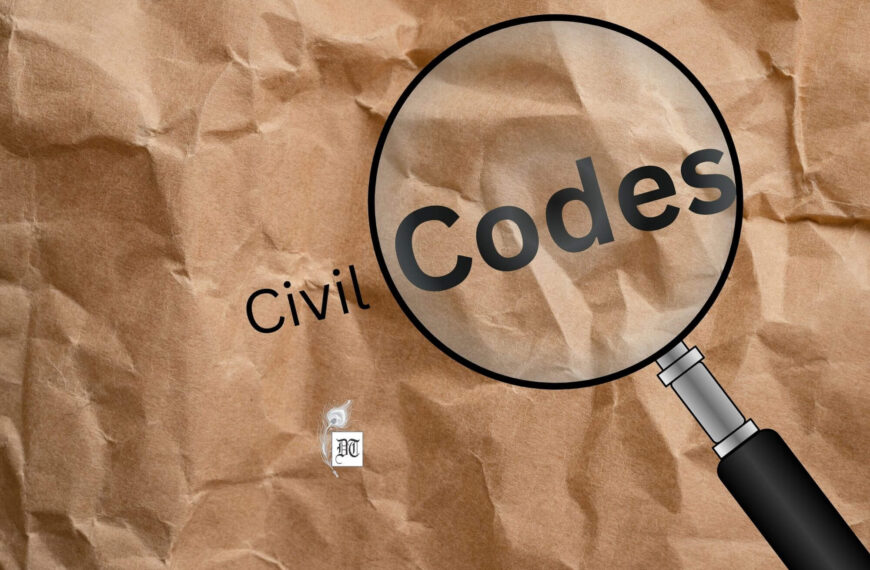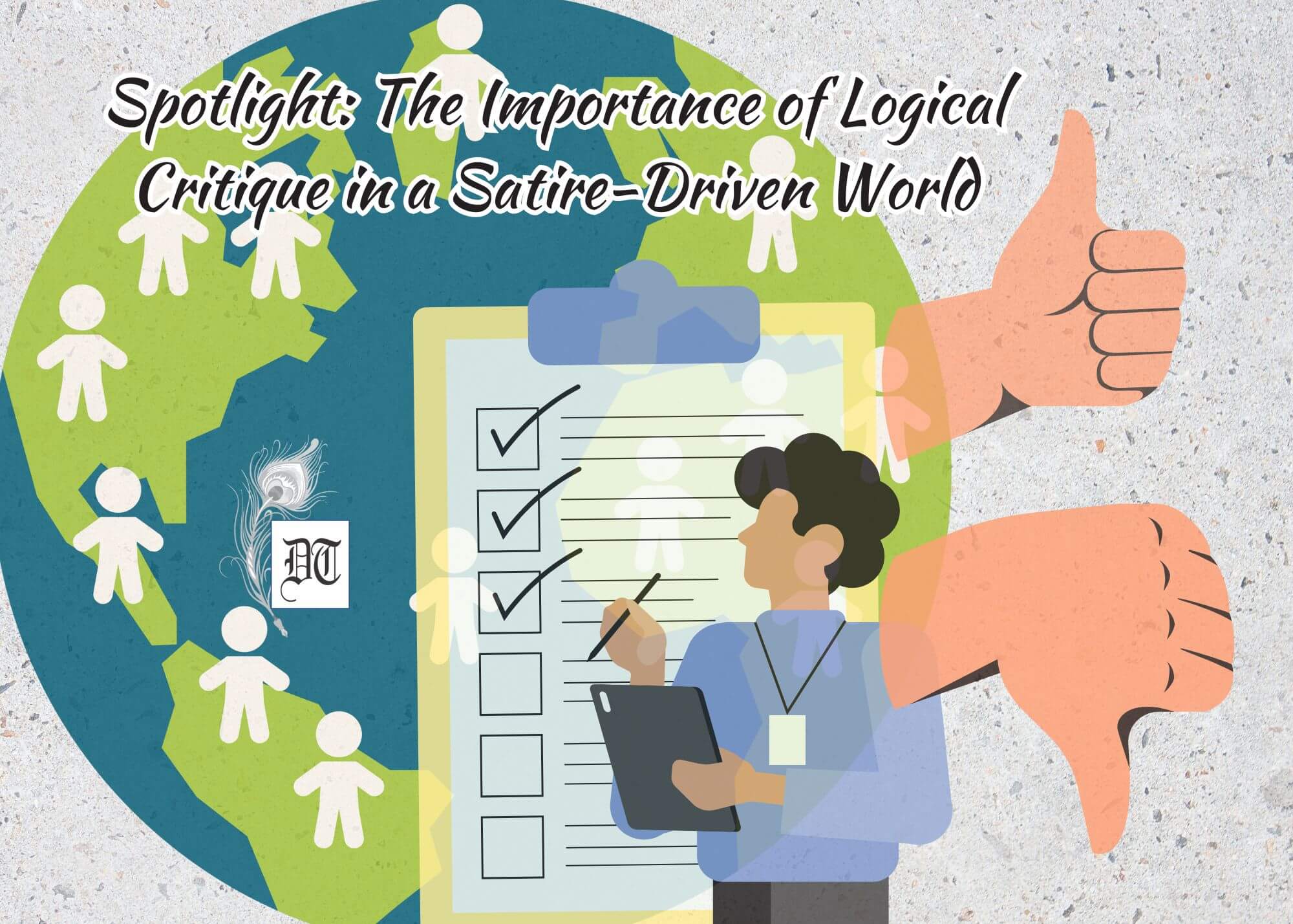Having a sense of humour is not the same as being funny. The latter implies being able to tell a joke well or perfectly timing a pun to lighten the moment during a serious conversation that could take a nasty turn. These are sweet, warm-hearted persons who diffuse tensions by making others laugh with their instant wit and word-play. Shernaz takes a look at the sense of humour, in the weekly column, exclusively in Different Truths.
What goes as humour can be witty, bawdy, slapstick, dry, mean and sometimes downright condescending! Life is a mixed palette mottled with absurdity, diversity, emotions, tenderness, beauty, duty, hard work, tensions, troubles, fears, desperation and is still infuriatingly worthwhile for those with a sense of humour.
A sense of humour allows a person to let go of seriousness, rather than sporting a perennially sour frown and flying off the handle. Seeing the absurd and the ridiculous in life and being able to laugh at it is the forte of those with a sense of humour. They often see the lighter side of situations, seeking out the amusing and taking the dourness out of them. They laugh with others not at them. If at all they laugh ‘at’ it is their own self. They love to have fun without making fun of people. They are the ‘laugh-at-life’ people, quick to see the humour, sometimes very wry, in the worst kind of political scenarios and life situations.
They come up with humour that makes light of the plight of the common man who is always at the  receiving end of a government’s impetuous and headstrong policies. We have seen a lot of such jesting in the memes, jokes and short video clips that have been doing the rounds of the social media for the past year or so, whether it was demonetisation, GST, rising prices and falling income or the much-touted bullet train. That is what has kept us going, during everything that has been foisted upon the public in the name of progress, development and a promising future even as many continue hoping for ‘Achche Din’, which is now being punned upon in English: ‘ache’ – pain and ‘din’ – noise; ‘painful din’. The turn-around makes you smile whether you want to or not.
receiving end of a government’s impetuous and headstrong policies. We have seen a lot of such jesting in the memes, jokes and short video clips that have been doing the rounds of the social media for the past year or so, whether it was demonetisation, GST, rising prices and falling income or the much-touted bullet train. That is what has kept us going, during everything that has been foisted upon the public in the name of progress, development and a promising future even as many continue hoping for ‘Achche Din’, which is now being punned upon in English: ‘ache’ – pain and ‘din’ – noise; ‘painful din’. The turn-around makes you smile whether you want to or not.
Having a sense of humour is not the same as being funny. The latter implies being able to tell a joke well or perfectly timing a pun to lighten the moment during a serious conversation that could take a nasty turn. These are sweet, warm-hearted persons who diffuse tensions by making others laugh with their instant wit and word-play. Theirs is a ‘bonding-in-the-moment’ kind of humour. Wit can also be funny but it more often involves a very sharp mental alertness in which someone comes back with a brilliant, quick retort. Again, sarcasm, as opposed to wit, is used more to insult someone or to express one’s annoyance. It is said that the best way to stop being sarcastic is to remain silent. To quote Shakespeare, “Better a witty fool than a foolish wit.”
While most of us love to laugh not all enjoy the same kind of humour. If slapstick comedy elicits peals of laughter from some, it is intelligent wit and a spin on words that make others laugh. An instance of how one man’s sense of the ridiculous can appear demeaning to another is the serial ‘Friends’ It was a staple in our home but there were those who felt it was indecent and could not be viewed with the family. So, even in humour what is hilarious for some becomes a point of contention for others. They are the cry-babies who see slurs in satire and spoofs even when they are not meant as an insult. They find ‘pun’ only when they are actually ridiculing others and so feel threatened by harmless hilarity. People with no or very limited sense of humour have another well developed-sense — that of self-importance. For them, everything is funny so long as it is happening to someone else and they spend their pompous lives feeling offended by someone or something.
 Cracking jokes at specific communities, the physically/mentally challenged or those who have different sexual orientation is not humour according to me. It is insensitivity, absolute nastiness and strongly indicates the pitiable mentality of those who find pleasure in such ‘fun’. And the countless pathetic jokes at the expense of women are now becoming trite like those aimed at Sardarjis, the valiant, intelligent Sikhs. They along with the Parsis are considered very jovial, sporting and above all, people who can laugh at themselves along with others. They are ones with a very good sense of humour. They have as much ability to take a joke as they have to make one. A current one (whose origin I am not aware of) doing the rounds is —
Cracking jokes at specific communities, the physically/mentally challenged or those who have different sexual orientation is not humour according to me. It is insensitivity, absolute nastiness and strongly indicates the pitiable mentality of those who find pleasure in such ‘fun’. And the countless pathetic jokes at the expense of women are now becoming trite like those aimed at Sardarjis, the valiant, intelligent Sikhs. They along with the Parsis are considered very jovial, sporting and above all, people who can laugh at themselves along with others. They are ones with a very good sense of humour. They have as much ability to take a joke as they have to make one. A current one (whose origin I am not aware of) doing the rounds is —
Q: When did diabetes start in India?
Ans: It started when the Parsis came from Iran to India and added sugar to the milk. (This alludes to an incident when Parsis, fleeing Arab persecution in Iran sought asylum in the kingdom of Jadi Rana of Sanjan. The king had a bowl full of milk brought to the refugees, indicating that his kingdom would not be able to take in any more people. The high priest of the Parsis is said to have added sugar to the milk, suggesting that they would blend in with his people and sweeten their land.)
All will agree with William Arthur Ward who says, “A well-developed sense of humour is the pole that adds balance to your steps as you walk the tightrope of life”. It is essential armour, a safety valve against the pressures and ills life metes out to us. Hilarity anchors families, friends and even communities offering the right perspective and shielding us from needless bouts of glumness. He who can find joviality in a difficult situation finds a winning ticket to go through it sooner than be bumped by every rough patch encountered in life. Everyone likes those who can make them laugh. Laughter and a shared sense of humour are known to have saved many relationships, marriages included, but the emphasis is on ‘shared’. If two people can’t laugh at the same thing together there are tensions and tugs in opposite directions instead of warm hugs.
*The social benefits of humour and laughter
There’s a good reason why TV sitcoms use laugh tracks: laughter is contagious. You’re many times more likely to laugh at other people than when you’re alone. And the more laughter you bring into your own life, the happier others around you will feel.
Sharing humour is half the fun—in fact, most laughter doesn’t come from hearing jokes, but rather simply from spending time with friends and family. And it’s this social aspect that plays such an important role in the health benefits of laughter. You can’t enjoy a laugh with other people unless you take the time to really engage with them. When you care about someone enough to switch off your phone and really connect face to face, you’re engaging in a process that rebalances the nervous system and puts the brakes on defensive stress responses like “fight or flight.” And if you share a laugh as well, you’ll both feel happier, more positive, and more relaxed—even if you’re unable to alter the stressful situation itself.
*Taken from Broca’s Doodle Pad at seeingwithc.org on Facebook
Laughter, as the cliché goes, is the best medicine. It comes with its own benefits, physical and psychological. By mitigating undue stress, it perks up mental hygiene, promotes good health, brings us closer to people especially like-minded ones, diffuses tensions and anger, and breaks through walls of resistance forging understanding and new relationships. Let smiles burst into innocuous mirth so that poker faces transform into pleasantly happy ones by the grid of laugh lines illuminating them.
Humor is a rubber sword – it allows you to make a point without drawing blood. ~ Mary Hirsch.
©Shernaz Wadia
Photos from the Internet
#Humour #Jokes #WordPlay #LightHeart #Laughter #Relationship #ShernazScribbles #DifferentTruths





 By
By
 By
By

 By
By